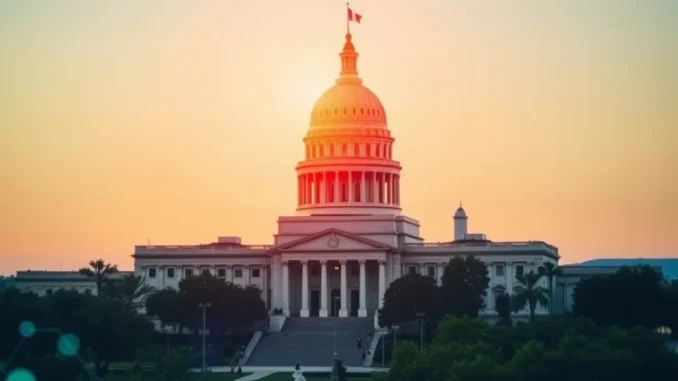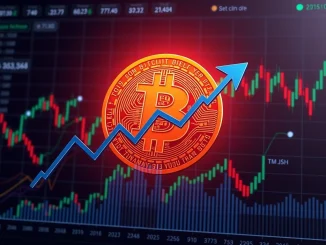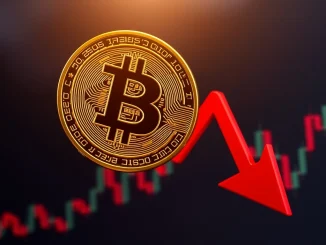
Big news out of the Lone Star State! Texas is making significant strides toward potentially holding Bitcoin as a state reserve asset. The Texas Bitcoin Bill, officially known as Senate Bill 21 (SB21), is currently undergoing its second reading in the state’s House of Representatives.
What is the Texas Bitcoin Bill (SB21) All About?
At its core, SB21 proposes studying and potentially establishing a Bitcoin reserve for the state of Texas. This isn’t just a casual look; the bill mandates a detailed study into the feasibility, benefits, and risks associated with the state holding Bitcoin.
Here are some key aspects of the bill:
- Study Mandate: Requires state entities to research the practicalities of a state digital currency reserve, focusing on Bitcoin.
- Feasibility Assessment: Evaluates how a Bitcoin reserve could function within the state’s existing financial framework.
- Potential Benefits & Risks: Analyzes the economic advantages (like hedging against inflation or attracting tech investment) and potential downsides (volatility, security concerns).
- Framework Proposal: Aims to propose a legal and operational framework for acquiring, managing, and securing a state Bitcoin holding.
This move signals a serious interest from Texas lawmakers in exploring how digital assets could play a role in state finance and investment strategy.
Where Does the Texas Crypto Law Stand Now?
The journey for SB21 has been progressing through the Texas legislative process. It successfully passed the State Senate on March 7th, a significant hurdle. Now, the focus is on the House of Representatives, where it is currently undergoing its second reading.
The legislative process typically involves several steps:
- Introduction: The bill is formally introduced in one chamber (Senate or House).
- Committee Review: It’s sent to relevant committees for hearings, public testimony, and potential amendments.
- First Reading: The bill is read before the full chamber.
- Second Reading: Debate and potential amendments occur on the chamber floor. This is where SB21 is currently in the House.
- Third Reading: Final vote on the amended bill in that chamber.
- Passage to Other Chamber: If passed, it moves to the other chamber to repeat the process.
- Conference Committee (if needed): If versions differ, a committee reconciles them.
- Governor’s Action: The final bill goes to the Governor for signing into law or vetoing.
The fact that SB21 has reached the second reading in the House indicates strong momentum and bipartisan interest in the concept of a state Bitcoin reserve.
Why is Texas Interested in a Bitcoin Reserve?
Texas has long positioned itself as a friendly environment for the cryptocurrency and blockchain industries. Several factors likely drive the interest in this Bitcoin legislation:
- Economic Innovation: Attracting and fostering growth in the burgeoning digital asset sector.
- Inflation Hedge: Exploring Bitcoin as a potential store of value to protect state assets against currency devaluation.
- Diversification: Adding a non-correlated asset to the state’s treasury portfolio.
- Industry Leadership: Solidifying Texas’s reputation as a leader in technology and finance.
- Energy Integration: Leveraging the state’s abundant energy resources, particularly renewables, which can be used to power Bitcoin mining operations, potentially creating economic synergy.
This isn’t just about buying Bitcoin; it’s part of a broader strategy to understand and potentially integrate digital assets into the state’s economic future.
What Could a State Bitcoin Reserve Look Like?
While the bill primarily focuses on studying the concept, the potential structure of a Bitcoin reserve would need careful consideration. Key aspects would include:
- Acquisition Strategy: How would the state acquire Bitcoin? Direct purchases, mining operations, or other methods?
- Custody and Security: How would the state securely store and manage private keys? This is paramount.
- Management Policy: Clear rules on when and why Bitcoin might be bought, sold, or used.
- Transparency and Reporting: How would the state report on the status and value of the reserve to the public?
The study mandated by SB21 is intended to provide answers and recommendations on these complex issues, paving the way for future Texas crypto law.
Challenges and Considerations for the Bitcoin Reserve Bill
While the potential benefits are significant, establishing a state Bitcoin reserve also comes with challenges:
- Volatility: Bitcoin’s price can fluctuate significantly, potentially impacting the reserve’s value.
- Security Risks: State-level reserves could become high-profile targets for cyberattacks.
- Regulatory Uncertainty: The broader regulatory landscape for cryptocurrencies is still evolving at the federal level.
- Public Perception: Gaining public and political support for using taxpayer funds to acquire a volatile asset.
SB21’s study phase is crucial for addressing these concerns thoroughly before any concrete steps are taken to establish the reserve.
What Happens Next with the Texas Bitcoin Bill?
The focus is now squarely on the Texas House of Representatives. The second reading involves debate and potential amendments. If it passes the second and third readings in the House, and if the House version differs from the Senate version, it would proceed to a conference committee to reconcile the differences. The final agreed-upon version would then need to pass both chambers before heading to the Governor’s desk.
Crypto enthusiasts and industry observers are watching closely, as the passage of this Texas Bitcoin bill could set a precedent for other states or even national discussions around integrating digital assets into public finance.
Conclusion: A Bold Move Towards a Digital Future?
Texas’s move to seriously study a Bitcoin reserve is a bold step reflecting the growing acceptance and potential integration of cryptocurrencies into traditional financial systems. While still in the legislative process, the progress of SB21 through the Senate and into the House second reading demonstrates a strong legislative appetite to explore this innovative approach. The outcome of this Bitcoin legislation could have significant implications, not just for Texas but potentially for the broader conversation about how governments interact with digital assets in the future. Stay tuned for updates as this potentially groundbreaking Texas crypto law progresses.



